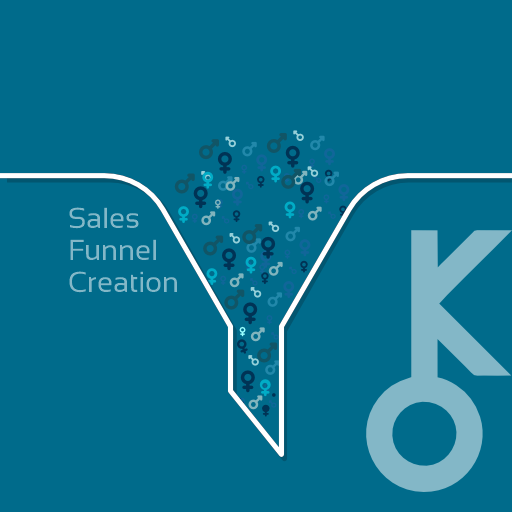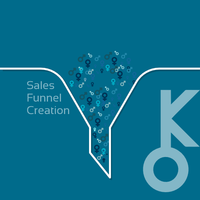Sales Funnel Tools and Software: CRM Software

Sales funnel tools are software programs or applications designed to help businesses track and manage their sales processes efficiently. These tools enable businesses to create effective sales funnels, which guide potential customers through the buyer's journey from initial awareness to purchase.
Benefits of Sales Funnel Tools
Improved Lead Management: Sales funnel tools help businesses track and organize leads, ensuring that no potential customer falls through the cracks. By categorizing leads based on their stage in the buying process, businesses can focus their efforts on nurturing and converting the most promising prospects.
Increased Conversion Rates: With a well-designed sales funnel, businesses can strategically move prospects closer to making a purchase. Sales funnel tools provide various features like automation, email marketing integration, lead scoring, and personalized messaging that contribute to higher conversion rates.
Better Customer Communication: Sales funnel tools facilitate communication between businesses and potential customers at different stages of the buying process. Through automated emails or targeted content based on customer behavior or preferences, these tools enable personalized interactions with leads.
Efficient Reporting and Analytics: Effective sales funnels require continuous monitoring and analysis. Sales funnel tools provide detailed reports on key performance indicators (KPIs) such as conversion rates, revenue generated per lead source, average deal size, etc. This data helps businesses identify areas for improvement in their sales processes.
Features of Sales Funnel Tools
While specific features may vary depending on the tool or software you choose, here are some common features found in many sales funnel tools:
Lead Capture Forms:
- Create customized forms for capturing lead information.
- Embed forms into websites or landing pages.
- Automatically populate CRM systems with captured leads.
Contact Management:
- Store all lead information in one centralized place.
- Track contact interactions (calls made, emails sent).
- Segment contacts based on predefined criteria like location or industry.
Email Automation:
- Create automated email campaigns triggered by specific actions.
- Build personalized email sequences tailored to each lead's stage in the funnel.
- Track email open rates, click-through rates, and other metrics.
Sales Pipeline Management:
- Visualize and manage all sales opportunities in one place.
- Assign tasks and set reminders for follow-ups.
- Track deal progress and forecast revenue.
Reporting and Analytics:
- Generate custom reports with key sales metrics.
- Analyze conversion rates at each stage of the funnel.
- Identify bottlenecks or areas for improvement.
Integration Capabilities:
- Integrate with other essential business tools like CRM software, marketing automation platforms, or customer support systems.
- Sync data across different platforms to ensure consistency and streamline workflows.
CRM Software
CRM (Customer Relationship Management) software plays a crucial role in effectively managing customer interactions throughout their lifecycle with a company—from initial contact as leads to becoming loyal customers. While not solely focused on sales funnels, CRM software often includes many features that complement the use of sales funnel tools.
Key Features of CRM Software
- Contact Management: Store contact information, communication history, purchase history, etc., in a centralized database accessible to relevant teams within an organization.
-Lead Tracking: Monitor leads' progress through the sales pipeline from lead generation to conversion. Assign tasks or follow-up reminders for team members responsible for nurturing leads.
Sales Forecasting: Predict revenues based on historical data and current pipeline status. Gain insights into upcoming deals and possible risks ahead of time.
Customer Segmentation: Group contacts/customers based on criteria like location, behavior patterns, demographics, etc., enabling businesses to personalize interactions accordingly.
Reporting and Analytics: Extract valuable insights from various data points such as KPIs, sales performance metrics, customer satisfaction ratings, etc.
Email Integration: Sync emails to CRM records for better context and streamline communication between team members.
In conclusion, sales funnel tools and CRM software are essential components of an effective sales strategy. By utilizing these tools in combination, businesses can streamline their sales processes, convert leads into customers more efficiently, and foster long-term relationships with their audience.
Sponsored
Sponsored
Sponsored
Explore More:

The Impact of AI and Machine Learning
As technology continues to advance at a rapid pace, businesses are constantly looking...

Future of Sales Funnels
The future of sales funnels is an exciting and promising concept for businesses...

Lessons Learned from Failed Funnels
In the realm of sales funnel creation, case studies serve as valuable resources...

Successful Sales Funnel Examples
In sales funnel creation, case studies play a crucial role in demonstrating the...

Case Studies in Sales Funnel Creation
In the world of sales and marketing, case studies play a crucial role...

Sales Funnel Recovery Strategies
Sales funnels are a critical component of any successful sales and marketing strategy....

Improving Funnel Efficiency
A sales funnel is a crucial component of any business's marketing strategy. It...

Identifying Funnel Leaks
A sales funnel is a systematic approach to guiding potential customers through a...

Sales Funnel Troubleshooting
Sales funnel troubleshooting is the process of identifying and resolving issues or bottlenecks...

Sales Funnel Tools and Software: Landing Page Builders
Sales funnels are essential in driving conversions and increasing revenue for businesses. To...

Sales Funnel Tools and Software: Email Marketing Tools
Sales funnel tools and software refer to the various technologies and platforms available...

Sales Funnel Tools and Software
A sales funnel is a framework used by businesses to guide potential customers...

Measuring Sales Funnel Performance: Analytics and Reporting
Measuring sales funnel performance analytics and reporting is a crucial aspect of any...

Measuring Sales Funnel Performance: Sales Funnel Metrics
Measuring the performance of your sales funnel is crucial for understanding the effectiveness...

Measuring Sales Funnel Performance: Key Performance Indicators (KPIs)
Measuring the performance of a sales funnel is crucial for any business aiming...

Measuring Sales Funnel Performance
Sales funnel performance measurement is a crucial aspect of any business operation. It...